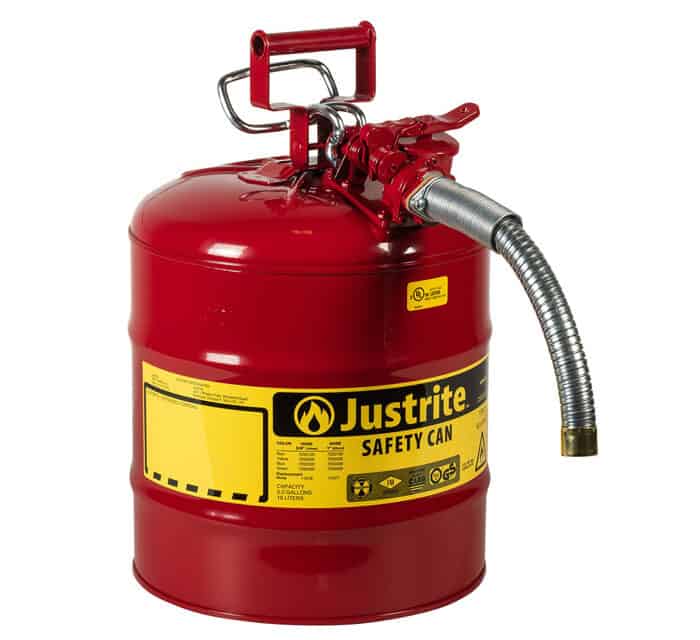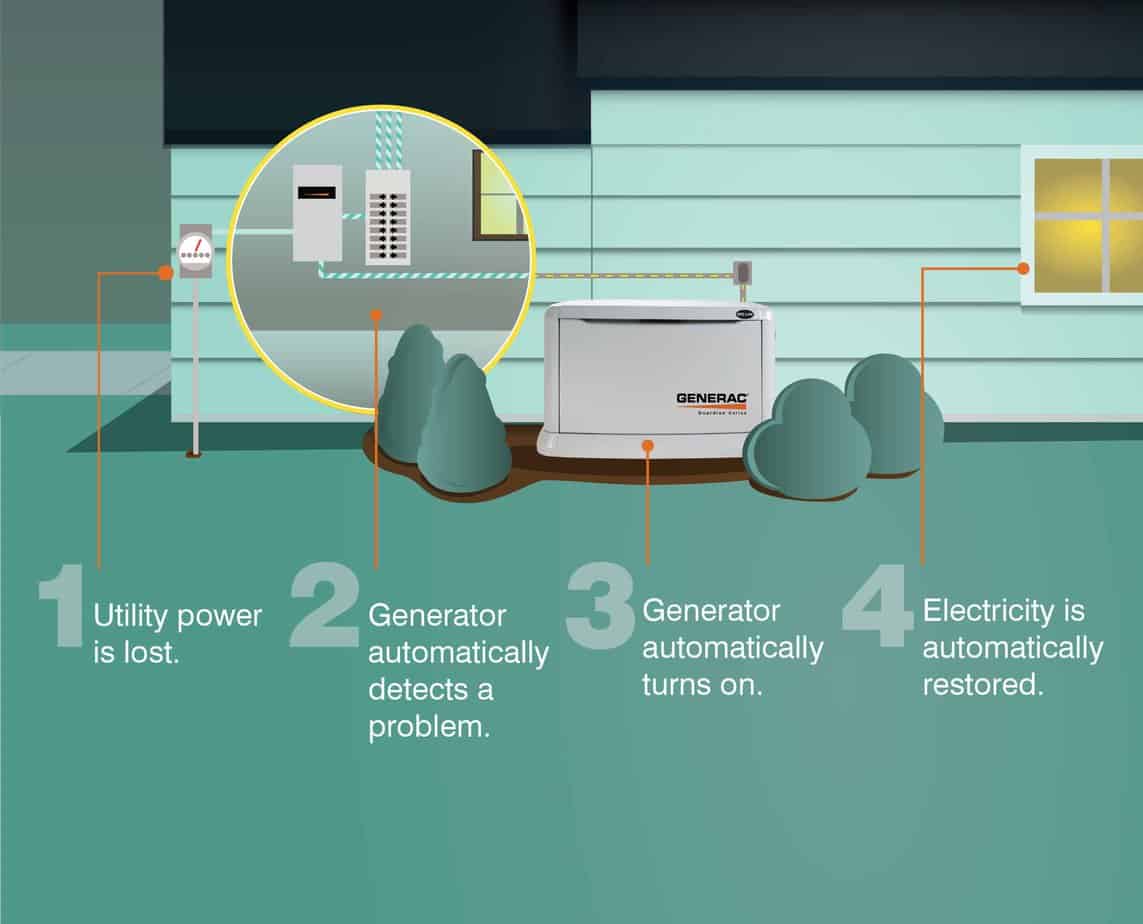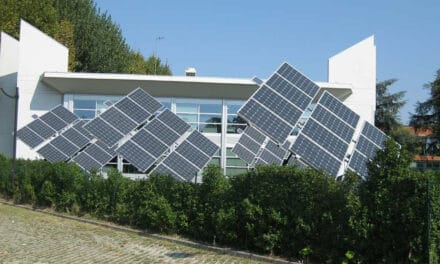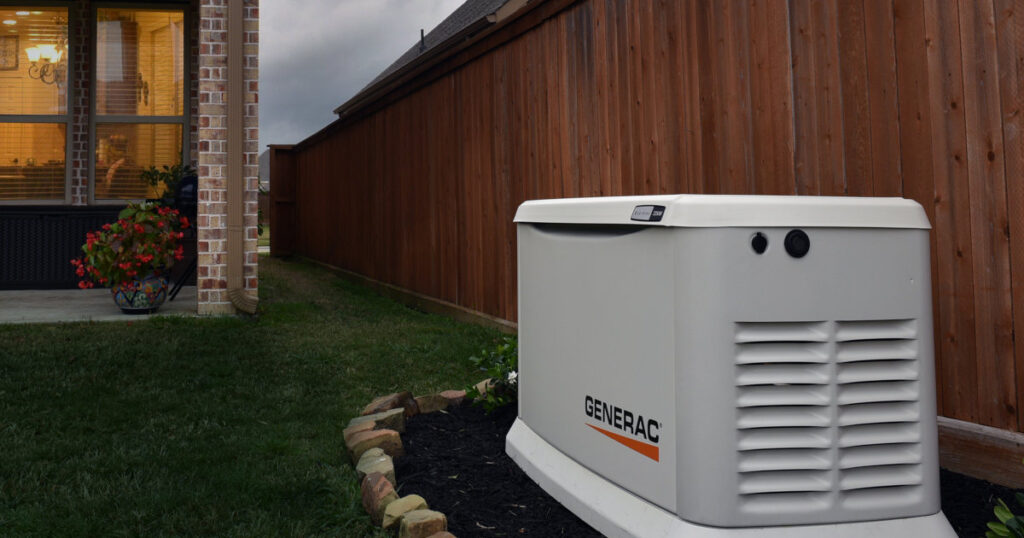Don’t Be Caught Without Fuel When the Next Power Outage Hits
When a power outage strikes, the last thing you want to do is drive around looking for an open gas station to buy fuel for your portable generator. Nearby retailers may be affected by the outage and unless they have their own generators operating, they won’t be open for business.
Have fuel on hand and ready to use in an emergency, rather than looking for an open gas station to buy it.
Most portable generators run on gasoline. A few run on propane or Natural Gas. Dual Fuel Generators run on Propane and Gasoline. A Tri Fuel Generator can run on Natural Gas, Propane, and Gasoline. Generators with multiple fuel options make it easier to store enough fuel for long outages.
Best Portable Generator for Home Use
Portable Generator Gasoline Storage Tips
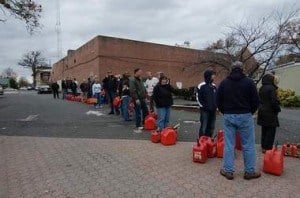
Photographer Jim Occi captured these photos of gas lines in Cranford on Thursday following Hurricane Sandy.
Store gasoline in approved containers only. Portable containers typically hold five gallons or less, are red in color, and are specifically designed for storing gasoline. Local fire codes usually permit you to store up to 25 gallons of gasoline.
Safety Tip: Never fill a generator when the engine is running or when it is hot. Always shut off the generator and allow it to cool before filling it. A spill on a hot engine can quickly turn into a fire or explosion when the spilled fuel ignites.
Use a gasoline stabilizer for long term storage. Add the stabilizer to the container before you fill it so that it is well mixed. The stabilizer will extend the life of gasoline up to 12 months. A second application after one year can extend the life another 6 to 12 months. It’s a good idea to rotate the gasoline into use before the first year is up.
Do not fill containers completely. Fill each five gallon container with no more than 4.75 gallons of fuel. This allows for air space in the container, which allows the gasoline to expand and contract as the temperature changes. The gasoline in a container can expand dramatically in the summer heat and the container may split or burst as a result if it is too full.
How to Use a Portable Generator for Backup Power
Keep containers of gasoline well away from gas water heaters, furnaces and other sources of flame or spark. The best place is outside the house in a garage or shed where there are never open flames or sparks. Don’t store containers directly on concrete since it may cause the container to deteriorate. Keep the storage area well ventilated.
Always remove the fuel container from your vehicle and place it on the concrete to fill it. Static electricity on the container can jump to the metal nozzle in the form of a spark and ignite the fuel. By placing the container on the concrete prior to filling, the static electricity is drained harmlessly off the can.
How to Prepare for a Power Outage
How Much Fuel?
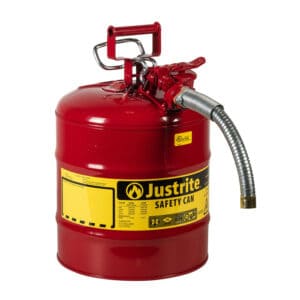 A 2500 watt inverter generator will operate two or three small appliances and provide some lights, or perhaps one large appliance. At 25-percent load, this generator will use up to six gallons of gasoline a day. Fuel use is directly proportional to the electrical load—the bigger the load, the more fuel the generator uses. Size of the generator also matters. Bigger generators use more fuel. A 5500 watt generator can burn 7 gallons of fuel in 10 hours at 50 percent load. Consumption at full load can increase fifty percent or more.
A 2500 watt inverter generator will operate two or three small appliances and provide some lights, or perhaps one large appliance. At 25-percent load, this generator will use up to six gallons of gasoline a day. Fuel use is directly proportional to the electrical load—the bigger the load, the more fuel the generator uses. Size of the generator also matters. Bigger generators use more fuel. A 5500 watt generator can burn 7 gallons of fuel in 10 hours at 50 percent load. Consumption at full load can increase fifty percent or more.
Limits on how much gasoline you are allowed to store, or are able to store, make it difficult to store more than a day’s worth of gasoline for a larger generator. Having enough gasoline on hand is only half the problem. The other half is finding and stocking up if the outage continues. Have your stored gasoline reserve handy, and keep additional containers ready for filling as necessary. Gasoline is highly flammable. Invest in good quality storage cans with safety pour mechanisms to prevent spills and reduce escaping vapor.
Did You Know that FEMA Recommends a Generator for Home Emergency Preparedness?
Consider a Dual Fuel or Tri Fuel Generator. Storing propane is easier than gasoline and you can purchase storage tanks from 20-pound to 100-pound capacity to fit your needs. Take them to any local propane supplier and they will fill them. For larger tanks, you might need an adapter for your regulator hose. Your propane supplier probably has those too.
Store enough generator fuel for the longest outage you anticipate plus one more day.
Best Portable Inverter Generators for Home Backup
Aging Fuel
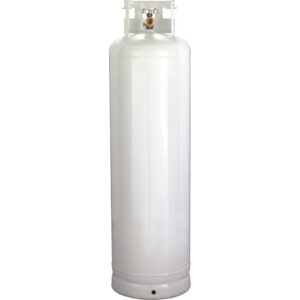
Larger propane tanks extend run times for dual fuel and tri fuel generators from hours into days.
Gasoline ages quickly and after just two months in summer, or four months in winter, it is beginning to change from fuel to a gummy varnish. A fuel stabilizer can extend it’s life for a year or more. It is important not to skimp―follow the manufacturer’s directions for the amount to add.
Don’t try to keep fuel too long. It is a good practice to rotate your fuel supply. Purchase fuel for your generator, add stabilizer and keep it for six to eight months. Then pour it into your car’s gas tank or use it in the lawnmower. Replace the fuel as you use it.
One great aspect of propane is an indefinite shelf life. It doesn’t go bad and will be just as good for generator fuel ten years from now as it was the say you filled the tank.
If you have natural gas at your home, a tri fuel generator can run for weeks without refueling if you perform maintenance on time.
Inverter Generator vs Portable Generator What’s the Difference
Portable Generators Need Oil

This maintenance kit includes a fuel stabilizer.
A well-built generator will run for years if the oil is changed on time and never runs out. Use the correct grade oil and maintain the correct level. Check the oil before you start the generator and each time you shut down to refuel.
The air-cooled engines found in portable generators and in standby generators use oil more quickly than your car, truck or other liquid-cooled engine. Don’t forget to keep oil on hand and to check the oil during extended periods of operation. Other maintenance may also be required. When your generator is operating for days or weeks without a break, it will need oil and oil filter changes, air filters and spark plugs. Put a maintenance kit and extra oil on your list of supplies and keep several kits on hand for extended outages.
Benefits of Portable Household Backup Generators

